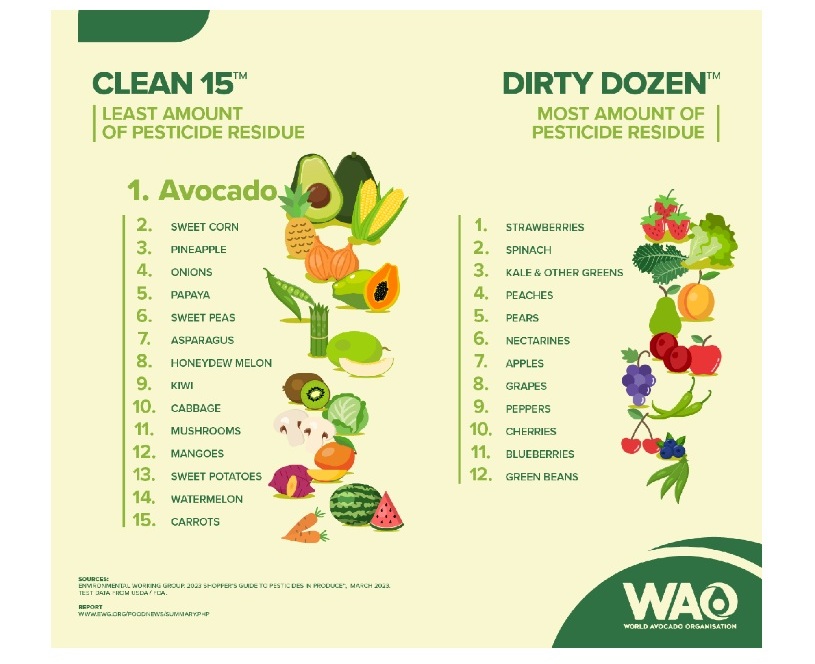Which fruit contains the fewest pesticides of all? The answer may surprise you: its special peel naturally protects it, making it the champion of the EWG's "Clean Fifteen" ranking.

Every year, thousands of fruit and vegetable samples are analyzed to check for pesticide residues — chemical substances used in agriculture to fight off insects and disease. Their presence isn’t just a health issue: pesticides pollute soil and water, harm entire ecosystems, and put essential pollinators like bees at risk. Worst of all, they end up in our food — and on our plates — exposing us daily to potentially harmful substances.
But it’s not just apples, spinach, or strawberries that get contaminated. Pesticides also accumulate in meat, fish, milk, and other animal products. How? There are multiple contamination pathways: through pesticide-laced animal feed, drinking water used on farms, disinfectants used in production areas, and even long-banned “legacy pesticides” that still linger in soil and air due to their persistence and resistance to degradation. We covered that in an article just yesterday.
“Dirty dozen” vs. “Clean Fifteen”
For years, international organizations have ranked foods based on how contaminated they are. One of the most well-known lists comes from the Environmental Working Group (EWG), which publishes an annual report called the Shopper’s Guide to Pesticides in Produce™. The guide divides foods into two key categories:
-
The Dirty Dozen: the produce with the highest pesticide residues
-
The Clean Fifteen: the fruits and veggies with the lowest levels of contamination
“less than 2% of avocado samples tested positive for pesticides”
So which fruit tops the Clean Fifteen? Avocados. According to the latest EWG guide, less than 2% of avocado samples showed any detectable pesticide residue, compared to over 90% of strawberries, apples, cherries, nectarines, and spinach, which tested positive for two or more pesticides.

Why avocados are naturally pesticide-resistant
The avocado’s secret? Its thick, tough skin. This natural armor protects the edible flesh from pests, which means less need for chemical treatments, even in non-organic farming. This makes avocados one of the safest fruits to consume in terms of pesticide exposure.
Additionally, many avocado farms are embracing sustainable agricultural practices. Some use drip irrigation, sensors, and artificial intelligence to reduce water waste, while others opt for high-quality fertilizers and biopesticides that don’t leave harmful residues behind.
“avocado farming can protect biodiversity — if done responsibly”
That’s a key message from the World Avocado Organization, which recently highlighted the fruit’s environmental potential during the International Day for Biological Diversity. The group emphasized that, when grown responsibly, avocados can actually help support biodiversity.
So, choosing avocados — especially those grown under responsible conditions (and even better if they’re locally produced) — is a small action that can make a big difference.
